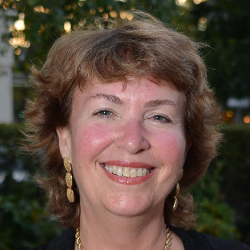
Please join us for the third lecture in the 2019-2020 Latin America Imagined series.
In the colonial period the gender ideologies and the gendered practices of the Catholic church were aligned and consistent. Gender hierarchy was good and necessary, and church institutions were nothing if not hierarchical. There were two ideal roles for Catholic women—marriage and the convent—and in both settings women were governed by men, for the good of all. The 19th century, however, brought a disjuncture between ideology and practice. New roles for women in the church, including ones in which they governed men, collided with patriarchal ideologies, and in some cases eroded them, at least briefly. This talk explores changes in Catholic practices and gender ideologies from the 1840s and into the early 20th century. It argues that there was something that looked like Catholic empowerment of women—feminism?—but it also argues that empowerment was, paradoxically, limiting and constraining, both for Catholic women and liberal women.
Margaret Chowning is Professor of History at the University of California, Berkeley, and the author of Rebellious Nuns: The Troubled History of a Mexican Convent, 1752-1863 (Oxford University Press, 2006) and Wealth and Power in Provincial Mexico: Michoacán from the Late Colony to the Revolution (Stanford University Press, 1999). She is completing a manuscript entitled "Catholic Ladies and Culture Wars: Gender, Church, and Politics in Mexico, 1700-1920." This social, institutional, and political history examines changing roles for women in lay associations, and links those changes to the emergence of Catholic women as important actors in Mexican politics. It argues that Catholic women not only entered politics much earlier than is generally thought (by the time of the mid-century Reform), but also entered as independent "players," not as pawns of priests. Women were thus consequential actors within the church, as well as in Mexican politics, and the early strength of their presence on the political scene helps us to understand the continuing importance of the Catholic church in Mexican politics to this day.
Cost: Free of charge and open to the public
Audience
- Faculty/Staff
- Student
- Public
- Post Docs/Docs
- Graduate Students
Interest
- Academic (general)
- Global/Multicultural